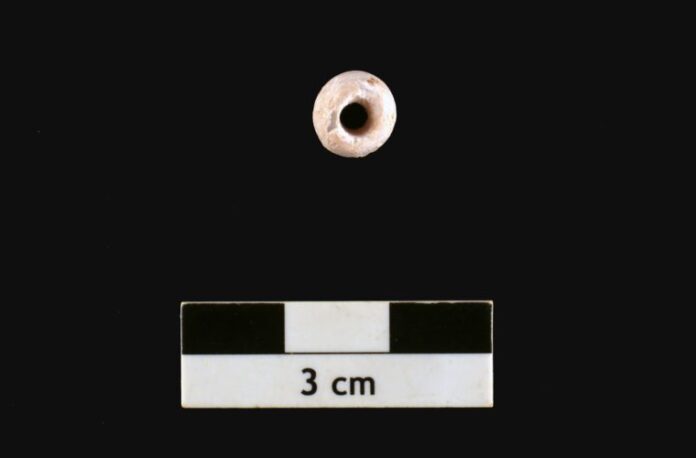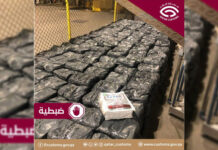A local excavation mission led by Dr. Ferhan Sakal, Head of Excavation and Site Management at Qatar Museums has discovered the oldest known natural pearl bead in Qatar, corresponding to the earliest human settlements on the peninsula. Dated to 4600 BCE, the historic find was enclosed within a grave at Wadi Al Debaian, one of the country’s oldest Neolithic sites.
Mr. Faisal Abdulla Al-Naimi, Director of Archaeology at Qatar Museums, said:
Image credit: Qatar Museums
The recently discovered grave points to the earliest known evidence of Qatar’s antique pearl diving industry, which over centuries formed the centre of trade and economic influx to the country. It also offers new insights into the early civilizations occupying the peninsula, including prevalent social structures and wealth distribution.
Located a few kilometres south of Al Zubarah on Qatar’s north-west coastline, Wadi Al Debaian has yielded several important archaeological finds over the years with pottery originating from the Ubaid period (ca. 6500 to 3800 BCE) of South Mesopotamia (modern Iraq), obsidian from Anatolia (modern Turkey) and further burial sites among the ancient remnants.
Wadi Al Debaian falls under Qatar Museums’ conservation and outreach scope. Through its year-round excavations and field work, Qatar Museums aims to preserve and document Qatar’s heritage through the epochs, and to construct a link between modern communities and their past.
The Wadi Al Debaian Neolithic cemetery was excavated as part of the National Priority Research Programme “Human Populations and Demographics in Qatar from the Neolithic to the late Iron Age” led by Sidra Medicine and funded by the Qatar National Research Fund.
Source: Qatar Museums
Follow us on our social media channels:
@ILQlive
@ILQlive
@ILoveQtr
ILoveQatar









